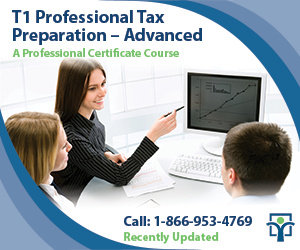Last updated: December 07 2016
November’s Poll: Beware of Increased CRA Scrutiny on Sale of Principal Residences

Knowledge Bureau’s November poll was a no-doubter. An overwhelming majority of 87% answered yes to the question: “Do you agree that the new reporting changes for 2016 will result in significant audit activity on the disposition of principal residences?”
Surprisingly, many thought this was a good move on CRA’s part; others thought that this is only the beginning of much more intense CRA scrutiny to come in this area.
Check out the comments:
Pat not only answered yes to the question, but agreed it’s the right thing to do: I hope CRA audits those that claim their home as a principal residence and have been claiming a secondary suite. This is not a new tax situation but one that has been ignored. I am hoping CRA has an option on the new forms requesting taxpayers to state if the home was used for rental or business.
Peter, too, believes this is a good move on CRA’s part: There has been too much tax evasion with respect to residential property in Canada.
Mitzi-Lynne was unequivocal in her agreement with the question: Oh, hell yes! One of my first thoughts was that the CRA is now going to be deciding whether the disposition was actually the disposition of a primary residence or not. They are giving themselves the ability to reject it if they feel like it. I compared it to someone foolishly filling out an NR74 residency form so that the CRA could make the decision as to whether the person was a resident, non-resident, etc. Oddly enough, the result always seems to come out to the Agency’s advantage. I suspect that this new property thing will be the same. I don’t see any good coming out of it.
Like Mitzi-Lynne, Ken agrees that there will be increased audit activity in this area, and goes on to ascribe ulterior motives to CRA: This is probably just stating the obvious but I think the CRA will have two main objectives. I think that initially the CRA will be looking at taxpayers who have been claiming office in home and/or rental to see if they have split the proceeds of disposition and paid capital gains in the same proportion as they have previously declared on their T1s. [Editorial note: the principal residence exemption is compromised when CCA is claimed on the home in these cases.]
I think they will also be creating a database on taxpayers’ reporting of principal residence dispositions that will be used in the future for comparing the date of acquisition and disposition of multiple principal residence claims over a period of years and, if in doubt, comparing them and the land transfer records. For example, if a taxpayer had declared his/her cottage as principal residence to avoid capital gains, and in a later year sells their home and makes the same claim with some overlapping years.
 |
Jo seconds the sentiment that these new reporting requirements from the CRA are just the tip of the iceberg: I agree with Ken: this is a back-door provision to target those who are renting out the basement or who are using even a small portion of the house to work from. Up to now, one could rent out a portion of one’s home, or work from home, without causing the home to lose the principal residence status. {Editorial note: provided CCA was not claimed.] I think this is being quietly changed in a most unfair manner.
Diane, too, agrees that this is just the start of CRA cracking down more heavily in this area: I believe there will be increased scrutiny in this area and CRA will have additional info and checks to find taxpayers who have either not declared a sale of a property or will also be able to track the number of properties sold by that same taxpayer. House flippers will be more easily identified and deemed to be in business as opposed to claiming just capital gains on a sale of property. There will also be a paper trail to note which years a previously disposed of property has been claimed to ensure only one principal residence per family per year has been claimed.
Brian had a more muted response to the question but still believes audit activity in this sphere will increase: There will definitely be some activity, but significant audit activity is unlikely. The CRA will likely watch for the disposition of one or more different properties by the same tax filer while still maintaining another residence. The vast majority who own real estate generally own only one property at a time. So, if you’ve never owned a second property at the same time, then no problem.
Thanks to all who participated in November’s poll and to those who offered up their opinion. Let’s see if December’s poll question sparks a similar amount of concern:
©2016 Knowledge Bureau Inc. All Rights Reserved.





